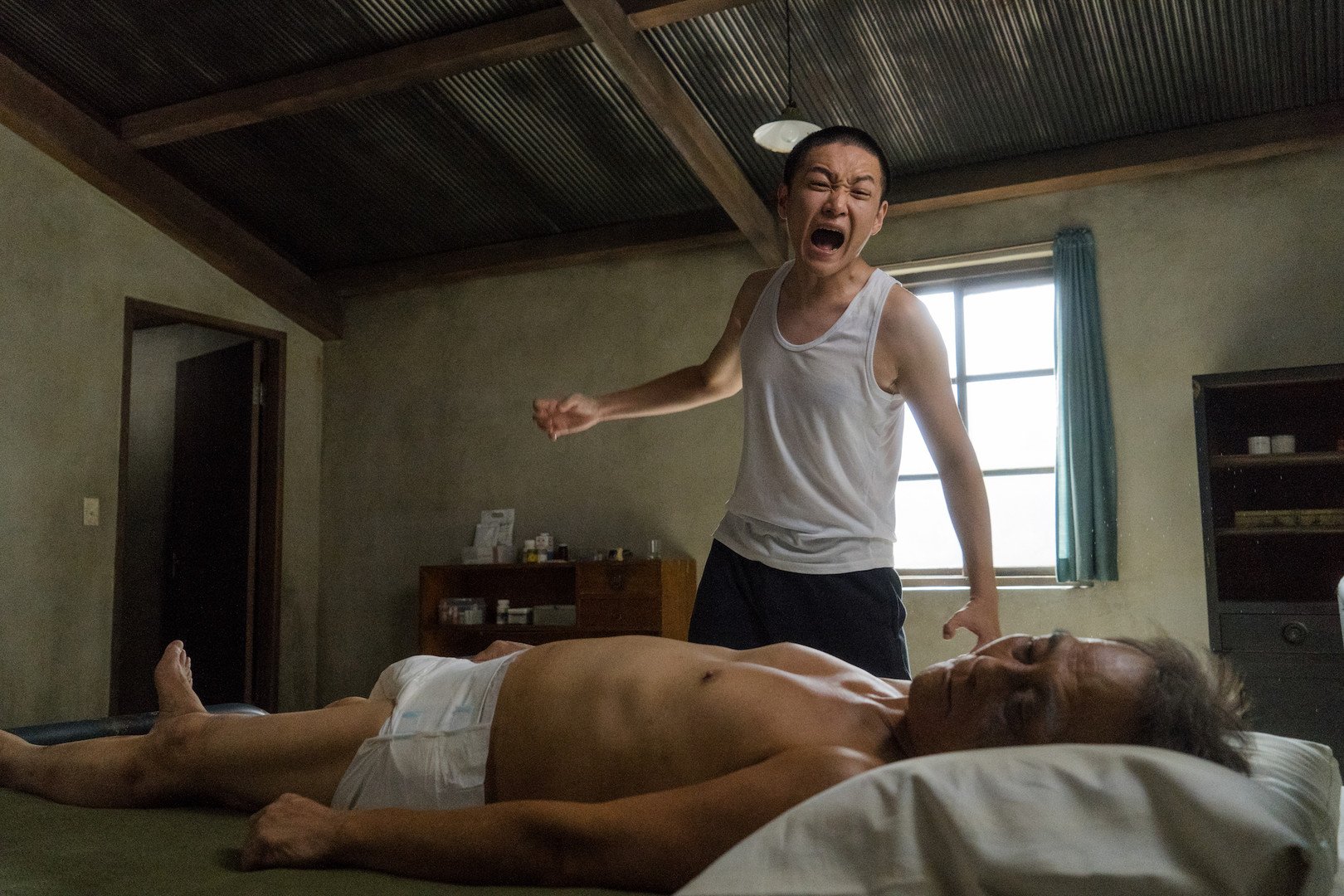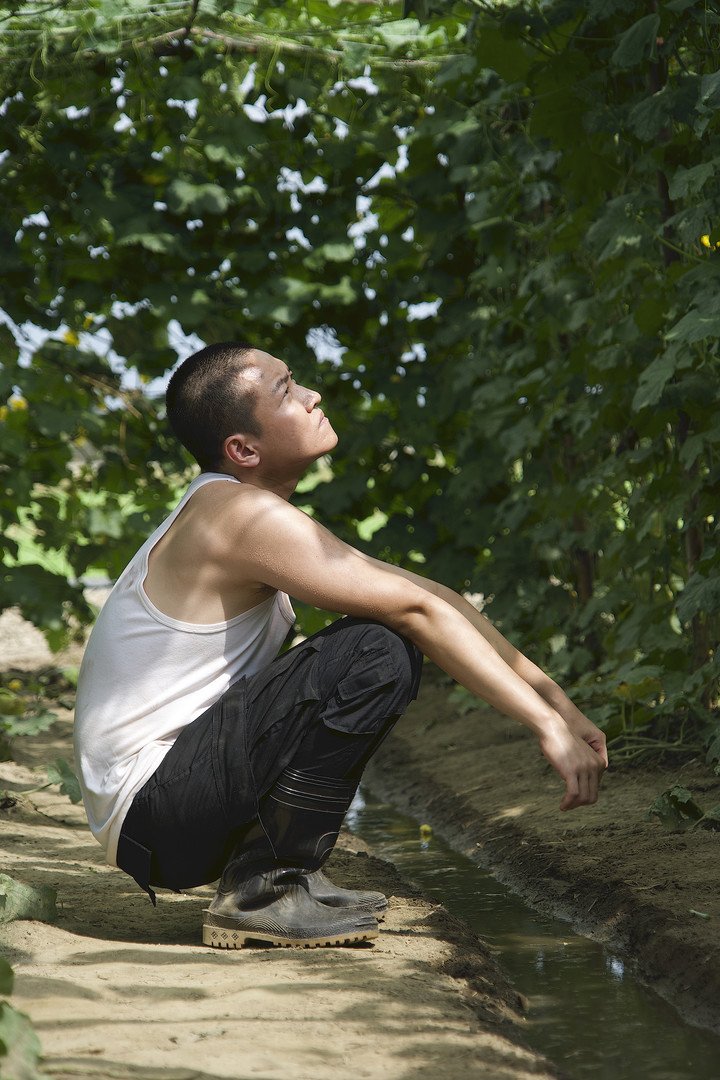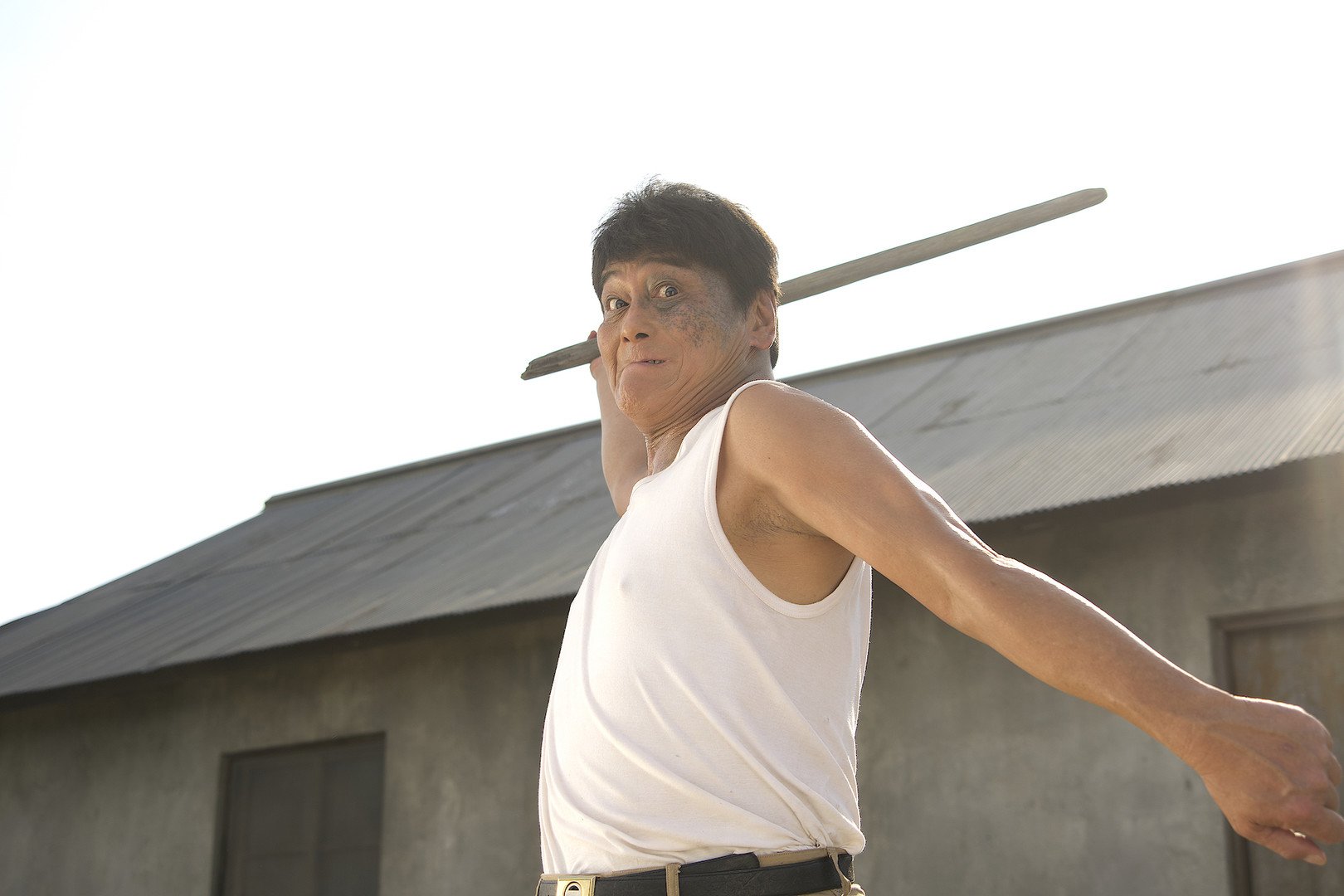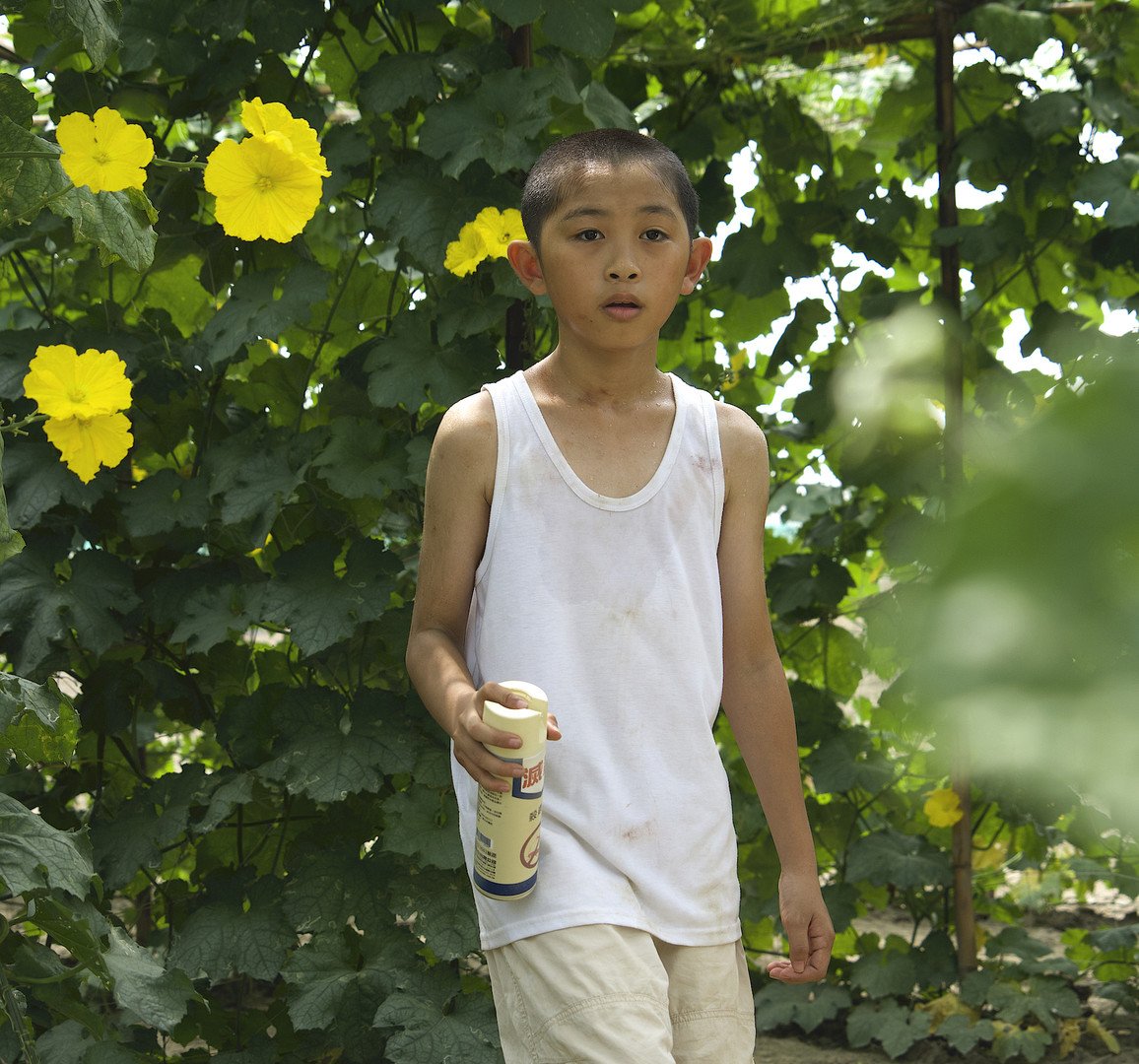Little Yellow Flower
Synopsis: Photo Retoucher A-nan returns to the old house that saddens him. The eerily beautiful yellow flowers on the loofah trellis attract a whole nest of ants. As a child, A-nan accidentally killed all these yellow flowers when spraying insecticide on them to kill the ants. In a rage, his father beat him lame. This caused a lifelong conflict between them. The elderly and paralyzed father, now wrapped in diapers and covered with ants, evokes the painful memories of A-nan’s youth. A-nan sprays and kills the ants again. But how will A-nan unravel this knotted relationship with his father, entangled for so many years? How will he restore the loving beauty of the yellow flowers that once bloomed in the courtyard?
Mr. Lin Chien-Ping
Bio:
Mr. Lin Chien-Ping, Taiwanese Film Director, Graduating from the Film Department of the School of Visual Arts, New York. His persisting on film art, has a unique personal creative style. The works have delicate emotions and use the correspondence between pictures and sounds to explore the inner world of the characters. In 2005, his short film "Small Station" won the Silver Lion Award for Best Short Film at the 62nd Venice Film Festival.
Statement:
It is my intention that through intense imagery that reflects the love-hate relationship between father and son, we can explore the invaluable yet often unrecognized or neglected father/son relationship through their persistent psychological and physical confrontations, which ultimately enables them to forgive and empathize with one another. In order to achieve this theme, I specifically designed scenes in which the contrast between the aesthetics of vibrant little yellow flowers with the ugliness of the desolate terrain establishes both an external environmental conflict and an internal conflict of love and hatred between father and son. When son was astonished by his actions that reflected the same violence as his father, like two suns that were too hot to look directly at each other, and he eventually realized that only through understanding and empathy can the inner conflict, guilt and gap between father and son be bridged.






